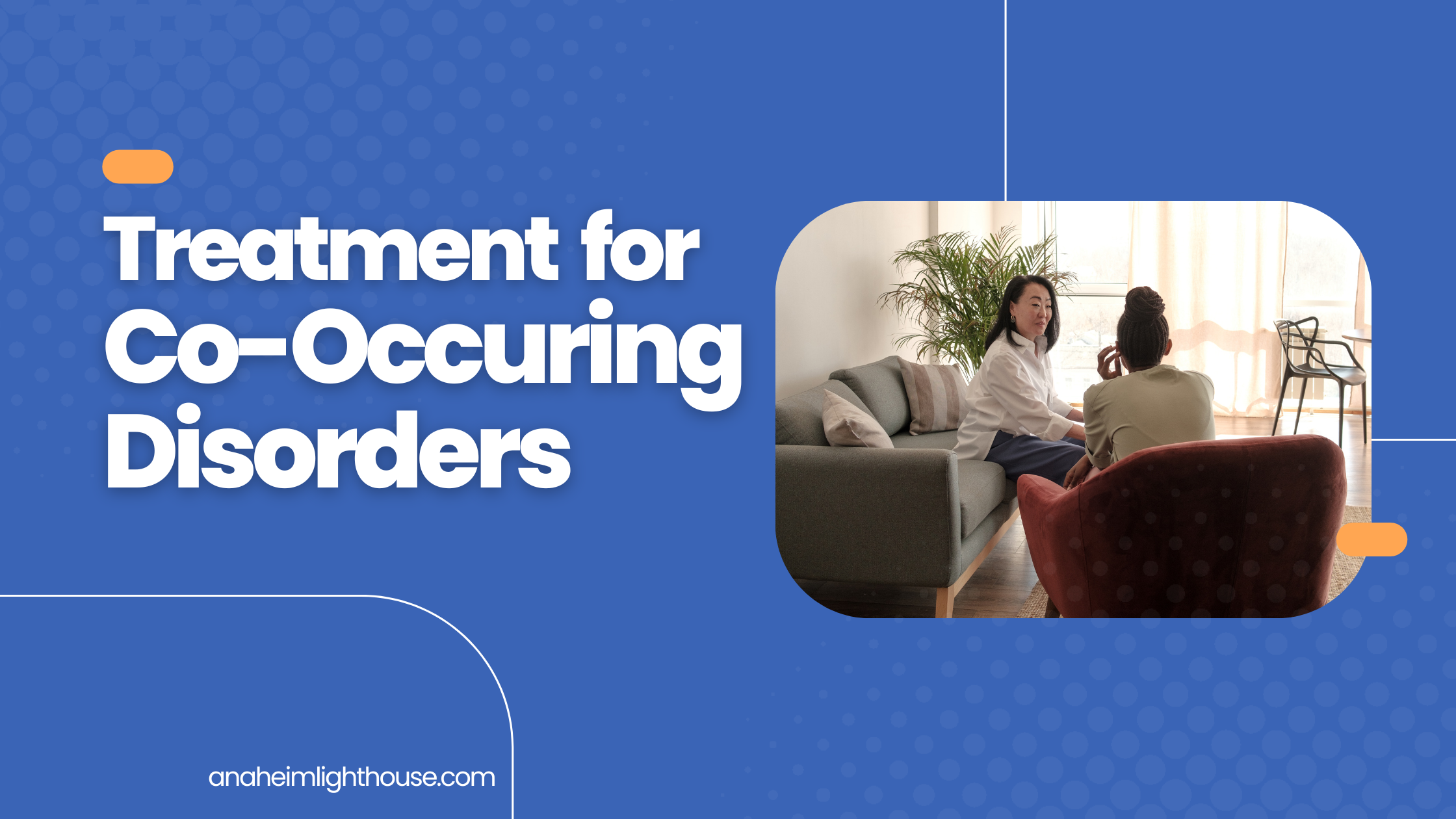Co-Occurring Disorders: Addiction & Mental Health Treatment
It’s not uncommon for people to suffer from both addiction and mental health disorders. Mental health and addiction are two of the most common co-occurring disorders. When someone is struggling with addiction, they are also likely to be struggling with a mental health disorder.
In fact, it’s estimated that around 53% of people who struggle with substance use disorders also have a mental health disorder. This can make treatment difficult, as both disorders need to be addressed for the person to recover.
In this article, we will discuss the treatment options available for those who struggle with co-occurring disorders. We will talk about what treatment looks like and how it can help people recover from both addiction and mental health disorders.
What Are Co-occurring Disorders and Why Do They Occur Together So Often?
Co-occurring disorders, also known as dual diagnosis, occur when a person suffers from both a substance abuse problem and a mental illness. The most common co-occurring disorders are substance abuse and depression, substance abuse and anxiety, and substance abuse and post-traumatic stress disorder (PTSD). Drug abuse coupled with Attention Deficit Hyperactivity Disorder (ADHD) is also becoming more common.
There are many theories about why these disorders so often occur together. One theory is that people use substances to self-medicate their symptoms. Another theory is that substances alter brain chemistry in a way that makes people more vulnerable to developing mental illness.
Whatever the cause, it is clear that the increase in co-occurring disorders is a serious problem that requires specialized treatment. Treatment typically involves both medication and therapy. Medication is used to treat the underlying mental illness, while therapy helps the person overcome substance abuse and develop healthy coping skills.
With proper treatment, people with co-occurring disorders can learn to manage their symptoms and live fulfilling lives.
The Symptoms of Addiction and Mental Health Disorders Can Be Very Similar
The symptoms of addiction and mental health disorders can be very similar. Many people who suffer from mental health conditions also struggle with substance abuse. For example, someone who is suffering from depression or bipolar disorder may self-medicate with alcohol or drugs in an attempt to ease their symptoms.
Similarly, someone with anxiety may turn to alcohol or drugs to help them cope with their fears. While the symptoms of mental health disorders can vary greatly, some common signs may indicate that someone is struggling. Symptoms of co-occurring disorder include changes in mood, sleep patterns, appetite, and energy levels.
Additionally, people with mental health disorders may also suffer from feelings of hopelessness, worthlessness, and helplessness. If you or someone you know is exhibiting these symptoms, it is important to seek professional help.
How Is the Treatment for Co-occurring Disorders Different from Traditional Addiction or Mental Health Treatment Programs?
Treatment for co-occurring disorders is different from traditional addiction or mental health treatment programs in a number of ways. For one, risk factors for developing co-occurring disorders are often different from those for developing either an addiction or a mental health disorder on its own.
For example, anxiety disorders and trauma are both risk factors for developing PTSD, which in turn is a risk factor for developing an addiction. As a result, treatment for co-occurring disorders must take into account all of the different risk factors that may be at play.
Additionally, many traditional addiction treatment programs often focus solely on abstinence from substances as the primary goal. However, for individuals with co-occurring disorders, it’s critical that treatment also addresses the underlying mental health condition. Without addressing both the substance abuse and the mental health disorder, there is a much higher risk of relapse.
By taking into account the unique needs of individuals with co-occurring disorders, treatment providers can develop more effective and individualized care plans that lead to better outcomes.
Benefits of Treating Co-occurring Disorders Together Instead of Separately
Treating both disorders together can help to address these issues and improve outcomes. Treating each disorder separately can actually make the other worse.
For example, treating only ADHD may lead to increased drug use as the person self-medicates their symptoms. Similarly, treating only the substance abuse may lead to an increase in impulsive behavior as the person tries to cope with their difficulties.
When both conditions are treated together, however, each can help to mitigate the symptoms of the other. Additionally, treating both disorders together can help to reduce the risk of relapse. People who receive treatment for both their addiction and their mental health disorder are more likely to stay in treatment and achieve long-term recovery.
Finding a Treatment Program that Specializes in Co-occurring Disorders
Many treatment centers specialize in co-occurring disorders and finding the right one can be a challenge. The first step is to understand what you or your loved one is struggling with. Consulting with an addiction treatment professional is important to determine whether your symptoms qualify as an addiction, a mental health disorder, or both.
Once you have a better understanding of the problem, you can begin to look for treatment centers that specialize in dual diagnosis. When seeking treatment for co-occurring disorders, it is important to find a treatment center that specializes in treating both conditions simultaneously.
Ideally, the treatment center should have a staff of doctors and therapists who are experienced in treating co-occurring disorders. They must be able to create a customized treatment plan for each patient.
The treatment plan should address both the mental health disorder and the substance abuse disorder and should be tailored to the individual’s unique needs. In addition, the treatment center should offer a variety of services, such as individual therapy, group therapy, behavioral therapies, and family therapy.
Not all treatment centers are created equal and you want to make sure you’re getting the best possible care. What’s most important is that you find a treatment program that offers the level of care and support you need to recover.
The Best Dual Diagnosis Addiction Treatment in California
Co-occurring disorder treatment is different from traditional addiction or mental health treatment programs in a few ways. First, co-occurring disorders are treated together instead of separately. This integrated approach allows patients to address all of their issues at the same time.
Second, co-occurring disorder treatment is holistic. This means that it addresses the mind, body, and spirit of the patient. Finally, co-occurring disorder treatment is tailored to the individual patient. No two patients are alike, so no two treatments should be either.
If you or someone you know is struggling with a co-occurring disorder, reach out to us today. We offer the best dual diagnosis addiction treatment in California and can help you get on the road to recovery.
















